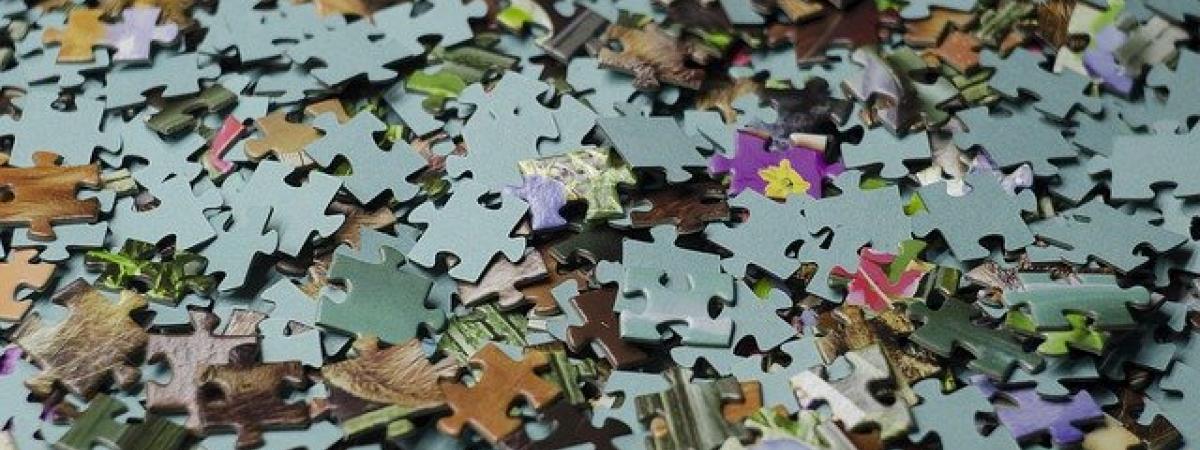One body, many parts

The little things make a big difference. Your hammer and anvil are as valuable as your hand and your arm, your pineal gland as essential as your patella. To quote St Paul, “If the whole body were an eye, where would the sense of hearing be? If the whole body were an ear, where would the sense of smell be?” Your body is a marvel of interconnected, interdependent parts.
But are all parts really equal? Or are some parts more equal than others? We can live without an appendix, a spleen or a toe. Recently my respect for the less impressive parts of the body increased, when I cared for a patient after toe surgery. I was struck by the extreme losses that can follow loss of an extremity. It also made me reflect on the value of the ‘little’ people in our healthcare system: like toes, usually considered less important.
Inconvenience, not a disaster?
These were the words of the orthopaedic surgeon as he diagnosed the bone infection in the toe and informed the patient that the tip of the toe had to go. He had a light-hearted manner, explaining the straightforward nature of the procedure, giving reassurance that he had already seen three such cases earlier that day. The operation itself was quick and the pain well-controlled.
Preparing for discharge the next morning and planning for a return to work and resumption of normal life, “bedrest for 2 weeks” was prescribed. The surgeon wanted complete elevation of the foot to rightly protect the wound. Bedrest would indeed ensure the best outcome for the toe, but what about the rest of the patient?
Already a wheelchair user, used to using his foot as a lever to transfer from bed to chair, the prescription of foot elevation transformed a differently-abled person into a disabled person. Equipment was hired (the Red Cross were the heroes here), meetings at work cancelled. Care needed providing and a different way of living adopted. When you are rooted to the spot for recovery, it can be hard to remember all that you need to hand in order to function.
As a nurse, the risk of bedrest to the rest of the body troubled me: pressure sores and chest infections needed to be kept at bay. Lying in bed all day can also harm your mental health: research shows that depression and neuroses can develop.
Getting the right balance
Your toes are essential for balance; they can even perform amazing feats such as painting and playing the trumpet (see the internet sensation Jahmir Wallace do just this). Wound healing after toe surgery is vital. It’s true that your toes should be treasured, but when the toe takes on too much importance, it’s time to think again.
In his powerful book, Atul Gawande, author of ‘Being Mortal’, addresses the conflict that exists between healing of a body part and wellbeing of the whole. He acknowledges the sometimes-competing desires to free the body from the ravages of disease whilst also allowing the patient to retain function for active engagement in the world. We needed the toe wound to heal; we didn’t want his mind and body to grind to a halt.
The little people in the NHS
Toes are valuable; their loss is lamented. The little people in the NHS are precious: the infantry are the tip of the spear of a modern army. I am speaking from experience here: fourteen years ago I wrote a column entitled “the view from the bottom rung (of nursing)” and I am still there now, providing bedside care.
From this vantage point, I have been privileged to see medical teams comprising surgeons, consultants, registrars, specialist nurses, pharmacists, administrators, ward nurses, radiographers, physiotherapists, carers, cleaners, porters and catering staff work together like a well-oiled engine. However brilliant the surgical technique may have been, recovery depends on post-operative wound care, good nutrition, a clean ward environment and a tailored exercise programme.
It’s important, however, to toe the line. Just as a toe must remember that it is a toe and not a heart, nurses shouldn’t try to be doctors. Doctor’s orders still have an important role in healthcare, though they should be evidence-based and take into account the views of the multidisciplinary team. Over-emphasis on a toe wound can negatively rule a post-operative patient’s life, hindering his general wellbeing; nurses with exaggerated feelings of self-importance may threaten the working of the medical team as a whole.
I have witnessed one A&E consultant leave his job because the senior nurses would not allow him to make decisions; another nurse deemed herself too important to care for the less sick patients. Many of my colleagues opt to carry out ‘important paperwork’ after a few years in the profession, leaving nursing care to junior staff.
In terms of salary and status, the NHS does mark out the ‘little people’. In terms of our value to the patient and his medical progress, we are as important as any other member of the team. Once we have the right attitude towards our position in the body that is the NHS, we can perform brilliantly without being puffed up.
